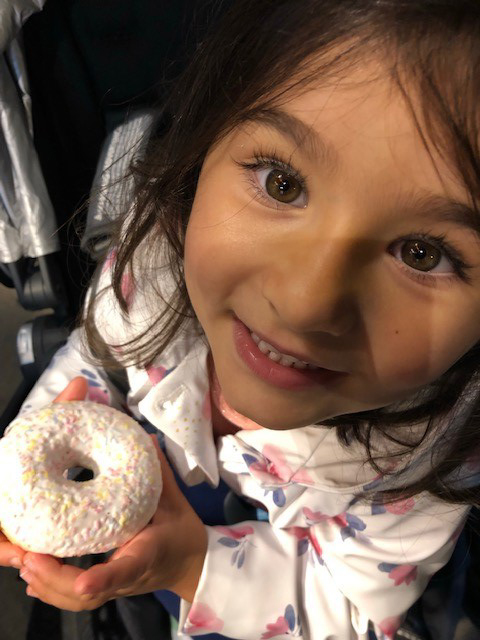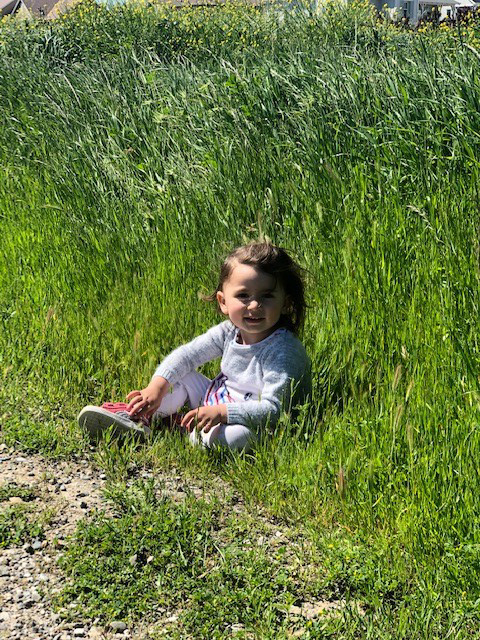 Pediatric Oral Health
Pediatric Oral Health
Caries is the disease that causes cavities. It is an infectious disease that is transmitted from parents or caregiver to the child. The bacteria in the parent's mouth are passed on to the baby through sharing utensils, food, kissing or cleaning the pacifier with your own mouth before giving it to your baby. It attaches to the gums even before the teeth erupt and will affect the baby teeth and if left untreated can go on to affect the permanent teeth that are forming under them. That is why it is important for parents and caregivers to maintain good oral health to prevent them from transferring the bacteria to their child. This knowledge allows dental professionals and parents to work as a team to prevent cavities throughout life.
Things you can do to avoid Caries disease
- Never put a baby in his/her crib with a bottle or sippy cup. When sleeping, tooth decay-causing sugars can pool in his/her mouth for hours, causing what is known as "tooth bottle decay".
- If you are nursing, wipe your baby's teeth with a damp washcloth or xylitol wipes such as Spiffies after you are done. Avoid using the bottle or breast as a pacifier!
- Wean your baby off the bottle between the ages of 12 and 18 months. You can introduce your baby to a sippy cup at about 6 months of age.
- The best way to avoid decay is to have your child finish the drink within 20 minutes. Do not let your child walk around with a bottle or sippy cup all day long.
- In order to avoid the transmission of decay-causing bacteria, avoid using the same spoon to taste and feed your baby or cleaning a pacifier in your own mouth before passing it to your child.
- Limit frequency of sugar intake, even before your baby gets teeth! The sugar is fuel for the bacteria in your child's mouth. The bacteria produce acids that will attack tooth enamel. If you give your baby fruit juice, do not allow them to take sips throughout the day. Milk, formula and breast milk are especially harmful if given too frequently or at bedtime without brushing teeth afterwards. Switch to water instead.
- Fluoride reduces the incidence of early childhood tooth decay. Ask your dentist when you should start using floride and how much is appropriate for your child.
- Bring your child for his/her first dental visit by the first birthday or six months after the first tooth erupts. We make the first visit fun for the child, and it is a great opportunity for you to ask questions about your child's oral health.
- Make sure everyone in the family visits the dentist every six months to insure good oral health and to prevent future problems.
Brushing & Flossing Instructions
Children's hands and mouths are different than those of adults. They need to use toothbrushes designed for children. Both adults and children should use brushes with soft, rounded bristles for gentle cleaning. Change to a new brush about every three months.
Wipe infant's gums gently with a moist, soft cloth or gauze square when no teeth are present. As babies grow, we encourage the use of an age appropriate toothbrush with a small, rice-sized dab of toothpaste. Make brushing a family event. If children see their parents brush they are more enthusiastic about brushing. We can encourage parents to help brush their children's teeth until they are 8 years of age.
Hold the brush at a 45-degree angle toward teeth and gums. Move brush back and forth with short strokes, about a half-tooth wide.
- Brush the inside and outside surfaces of each tooth, top and bottom.
- Hold the brush flat on top of the teeth and brush the chewing surfaces.
- Gently brush the tongue to remove debris.
- Floss between teeth daily.
When To Begin Brushing
Once your child's teeth begin erupting, you can begin to use a soft, age appropriate toothbrush. You should use just a rice-sized amount of children's toothpaste until your child is able to spit it out (too much fluoride can stain their teeth).
Getting toddlers to brush their teeth can be quite a challenge. Some suggestions for making tooth brushing less of a battle can include:
- Let your child brush your teeth.
- Let your child pick out a few toothbrushes with his favorite characters and give him a choice of which one he wants to use each time (this will give him some feeling of control over the situation).
- Let your child brush his own teeth first (you will likely have to "help out").
- Let your child read some children's books about tooth brushing.
- Have everyone brush their teeth at the same time.
To help your child understand the importance of brushing, it can be fun and helpful to let him or her eat or drink something that will "stain" the teeth temporarily and then brush them clean.
It can also be a good idea to create a "tooth brushing routine" - and stick to the same routine each day.
The first baby teeth that come into the mouth are the two bottom front teeth. You will notice this when your baby is about 6 to 8 months old. Next to follow will be the four upper front teeth, and the remainder of your baby's teeth will appear periodically. They will usually appear in pairs along the sides of the jaw until the child is about 2-1/2 years old, by which time your child should have all 20 teeth.
Between the ages of 5 and 6, the first permanent teeth will begin to erupt. Some of the permanent teeth replace baby teeth and some don't. Don't worry if some teeth are a few months early or late, as all children are different.
Baby teeth are important as they not only hold space for permanent teeth, but they are important to chewing, biting, speech, and appearance.
For this reason it is important to maintain a healthy diet and daily hygiene.
What Causes Tooth Decay?
Several specific types of bacteria that live on the teeth cause decay. When sugar is consumed, the bacteria use the sugar, and then manufacture acids that dissolve the teeth and cause an infection in the tooth. This infection is called decay.
What Is Early Childhood Tooth Decay?
Babies who go to bed with a bottle of milk, formula, or juice are more likely to get tooth decay. Because the sugar in formula, milk, or juice stays in contact with the teeth for a long time during the night, the teeth can decay quickly.
Some Tips To Avoid Early Childhood Tooth Decay
- Put your child to bed with a bottle of plain water, not milk or juice.
- Stop nursing when your child is asleep or has stopped sucking on the bottle.
- Try not to let your child walk around using a bottle of milk or juice as a pacifier.
- Start to teach your child to drink from a cup at about 6 months of age. Plan to stop using a bottle by 12 months.
- Don't dip your child's pacifier in honey or sugar.


3932 24th Street | San Francisco, CA 94114
ph. 415.678.5445 | fax. 415.796.2761









